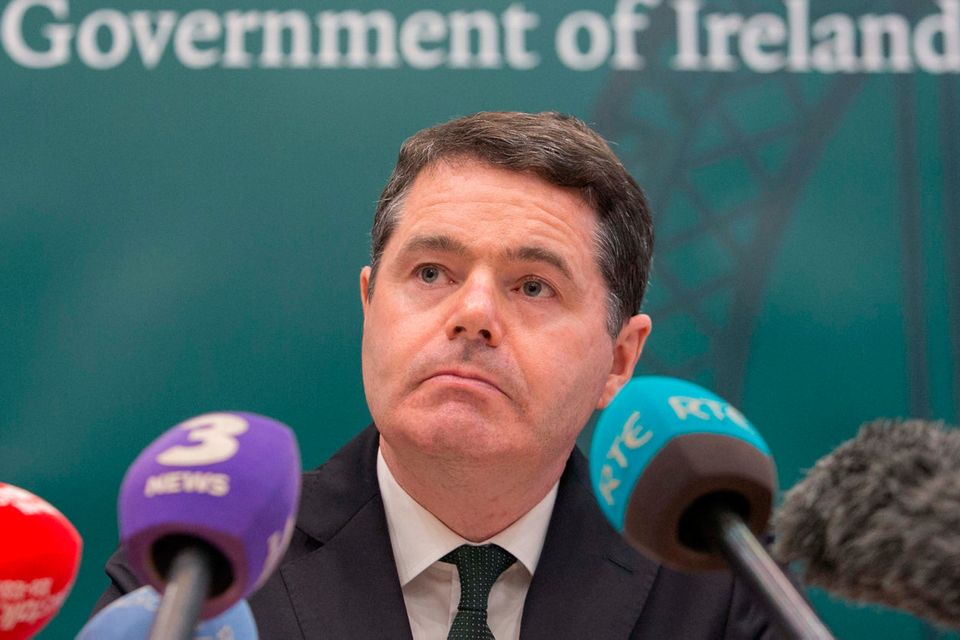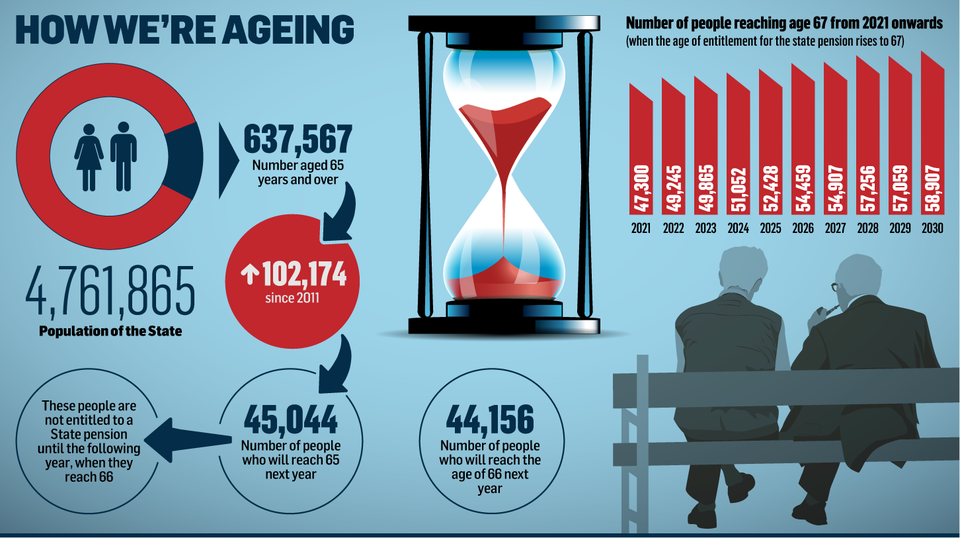All public servants will now work until they're 66 years old
Move to close gap between retirement and start of pension
Finance Minister Paschal Donohoe Photo: Gareth Chaney Collins
Tens of thousands of public service workers will spend an additional year in the workforce as plans are being advanced to increase the retirement age by one year to 66, the Irish Independent understands.
The Government is actively researching the impact of such a move on the public-sector workforce.
The retirement age in the public sector for most workers who joined before 2013 is 65 years, which constitutes the vast majority of those still working.
For those who joined since January 1, 2013, the retirement age is 66.
Sources say Finance Minister Paschal Donohoe considered an announcement as part of Budget 2018 that the retirement age of 66 will now extend to the majority of public service workers - gardaí, firefighters and members of the Defence Forces have provisions for much earlier retirement - but decided to wait a "little longer before going public".
It comes as the number of people forced to retire at 65 years of age - but not entitled to a pension until 66 - is soaring.
An estimated 5,000 older people are currently in a 'no man's land' when it comes to social welfare entitlements.
These people are obliged to sign for the dole and formally pretend they are "available for work" until they qualify for the old-age pension 12 months after being forced out of the workplace.
It is anticipated that this figure could continue to increase by up to 5,000 annually, although it will vary year to year.
Unless changes to the system are introduced, the problem will be compounded in 2021 when the pension age increases to 67. And within a decade the pension age will have risen to 68.
It is understood the issue was discussed during the pre-Budget negotiations between Fine Gael and the Independent Alliance at the behest of Junior Minister Kevin 'Boxer' Moran.
"There was agreement on all sides that people should be allowed to work until 66 if they want, but it was felt that more work should be done before making an announcement," a source said.
In recent weeks, the Independent Alliance issued a largely unnoticed press statement calling for the retirement age to be raised.
"By giving workers the option to stay in the workplace until they reach 'pensionable age', this means that they will continue to contribute to the Exchequer and would not have to claim social welfare payments to carry them through to when the pension is payable," the statement said.
However, well-placed sources told the Irish Independent that changes were already "a done deal". "It's in train now and it will happen sooner rather than later," the source said.
Fianna Fáil's social protection spokesman Willie O'Dea has previously called for the abolition of compulsory retirement at 65.
While there is no single fixed retirement age for employees, many workplaces do set 65 years as the exit date in their employee contracts.
The 2016 Census showed numbers aged over 65 had grown by 100,000 over the previous five years, to a total of 640,000.
The current pensions bill is put at €7.2bn, or over one-third of the entire spend on social welfare.
In 2013, the formal pension age was increased to 66 years and the so-called "retirement pension", which bridged the gap for those obliged to quit at 65, was abolished. Instead, many people in that position end up signing on the dole.
Join the Irish Independent WhatsApp channel
Stay up to date with all the latest news
















